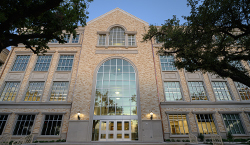Through the Ralph Lowe Energy Institute, Energy MBA students are collaborating with international partners to develop practical energy solutions from West Texas to Suriname.
April 18, 2025
By Kelly Kjetsaa
As the sold-out TCU Global Energy Symposium wrapped up a full day event analyzing Permian growth, energy storage solutions, natural gas and innovative energy developments, a group of MBA students from TCU’s Neeley School of Business was just getting started.
The final panel of the Global Energy Symposium offered a peak into the future combining student success and community engagement. For these students, the symposium launched a weekend of intensive work on international energy projects, each tied to real-world issues and developed through partnerships coordinated by the Ralph Lowe Energy Institute.
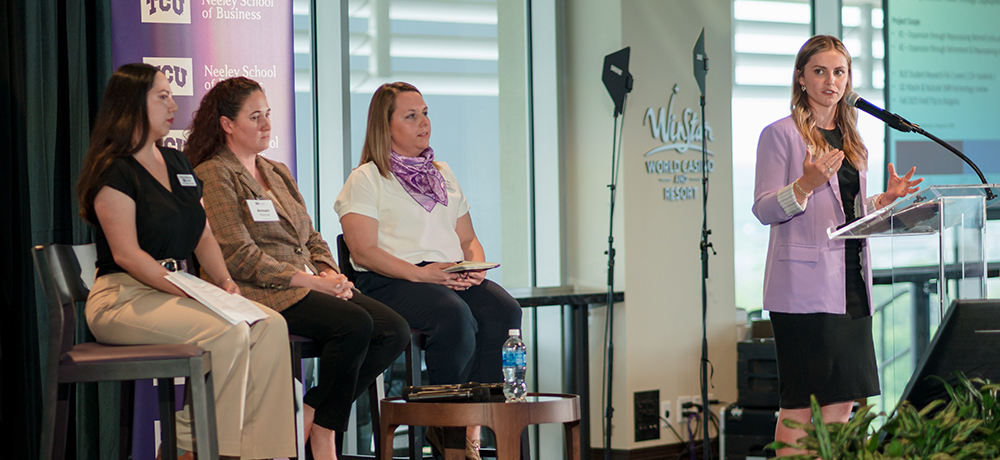
One of the three student teams partnered with Deep Blue, a Houston-based energy infrastructure company, to address the growing problem of produced water – high-salinity wastewater generated during oil and gas extraction.
“We are looking at what solutions are out there for the produced water problem that is evidently hitting every oil field,” said Gaines Meyer, a student in the Energy MBA program working on the project. “It comes out with really high salinity levels... and that causes a lot of issues.”
Students explored long-term solutions such as desalination for agriculture, industrial reuse, or using the water in nuclear cooling systems.
“This is a real problem with a real company,” Meyer said. “And you have real situations that you have to account for.”
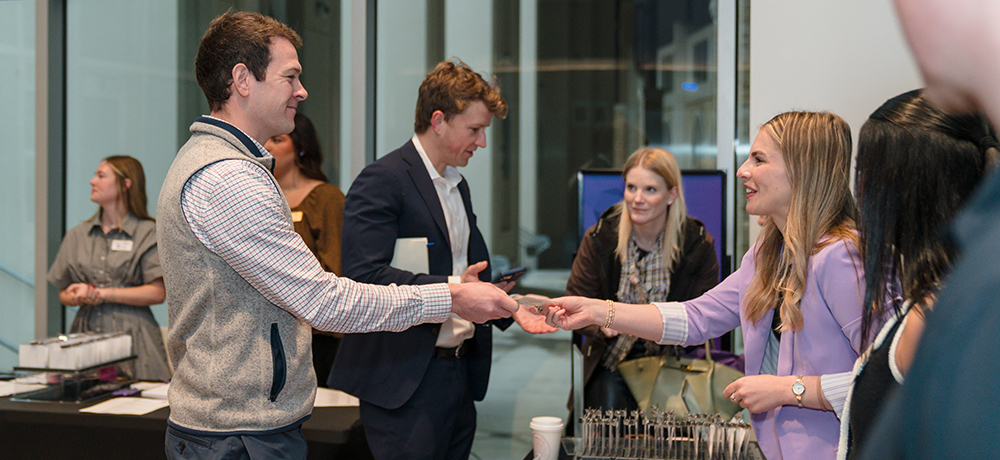
Exploring International Solutions
Other student teams focused on global initiatives. Students partnered with Glavbolgarstroy (GBS), Bulgaria’s largest infrastructure firm, to explore how small modular reactor (SMR) technology could repurpose inactive nuclear sites and reduce reliance on coal.
“The most challenging part is getting familiar with how different countries operate,” said Hannah Whorton, a student working with the Bulgarian team. “International companies have very different regulatory and legal frameworks… It’s already kind of hard to do it in the US – so how do you do it somewhere else?”
For Suriname, one of the world’s only net carbon-negative countries, students collaborated with the Suriname Energy Chamber, EnergieBedrijven Suriname (EBS) –the country’s primary electricity and gas utility company – and Harnyss, a Fort Worth-based technology company focused on sustainable energy solutions, to design a smart city concept powered by renewable energy and built for resilience.
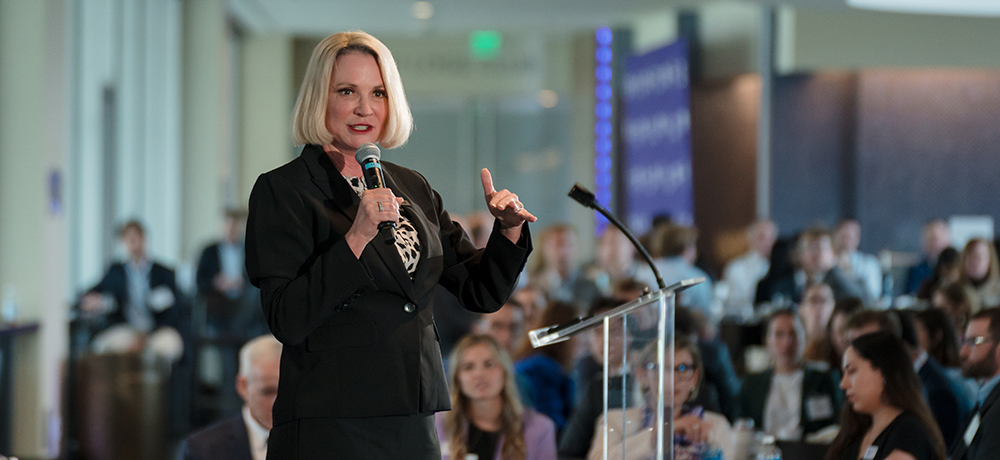
“We’re connecting with TCU to develop a pilot project—not only for our country, but as an example for others,” said Peter Donk, an energy specialist at EBS. “It’s about combining technology, community and long-term sustainability.”
Real Experience, Lasting Impact
“Our mission is students, collaboration and community,” said Nikki Morris, executive director of the RLEI. “All of these projects are building research and real solutions – not just technical, but economic. Because there’s no easy fix right now.”
Students aren’t just observing from the sidelines. They’re on calls with engineers, analyzing proposals and presenting ideas to company leaders.
“They trust me to do real work,” said Whorton. “The Ralph Lowe Energy Institute and the business leaders are not limiting me to certain tasks—they want me to dive in and go.”
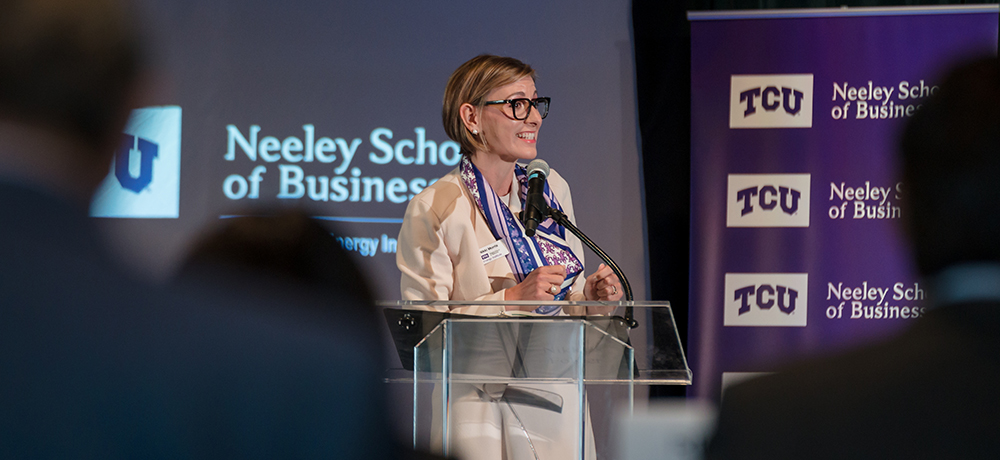
Many students will continue working with industry partners into the summer, with opportunities to refine proposals or travel to project sites in Midland, Texas and abroad.
“This project made me think differently,” Meyer said. “It’s not just about theory. It’s about putting that knowledge into something that can actually work – and learning how to communicate that under pressure.”
From Midland to Suriname and Bulgaria, Neeley MBA students aren’t just learning about energy innovation – they’re helping shape its future.

